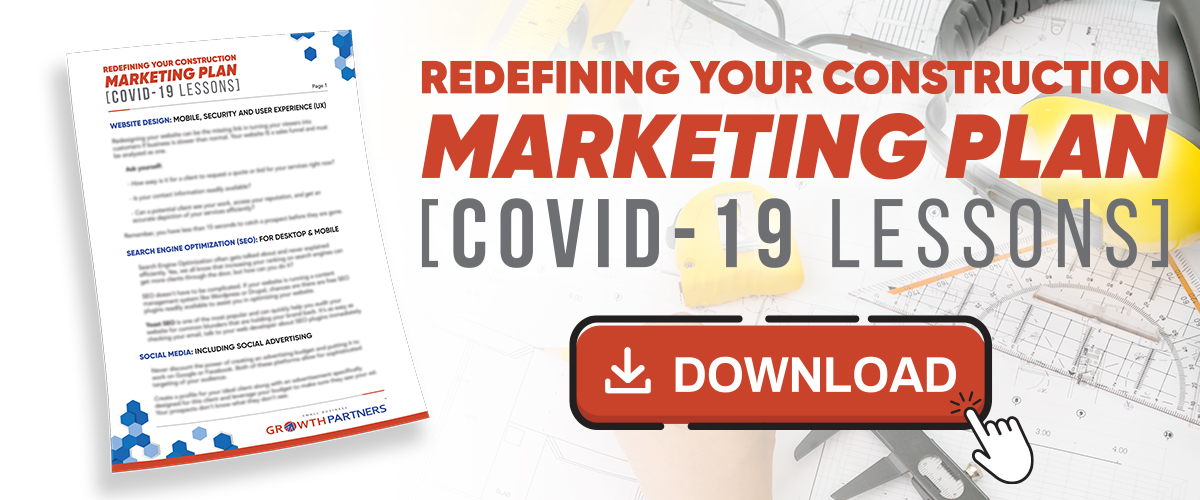In recent years, the construction industry has grown, and with this growth comes the demand for more skilled employees. Unfortunately, the number of qualified applicants hasn’t increased to meet this demand, leaving many construction crews shorthanded. Part of this is due to the Baby Boomer generation retiring, and part of it is due to how trade jobs and manual labor is seen today. Young people are being told more and more that without a college degree, they’re worthless. This pressures them to go to college instead of trade school or apprenticeship, leaving even more jobs in construction unfilled.
This is one reason why hiring the right people is even more important. If you hire someone who isn’t a good fit, they won’t stay with your company for long. You’ll quickly be right back where you were—shorthanded and spending more time than you want to doing interviews and reading resumes. To avoid this, here are some areas you need to carefully consider before you hire anyone.
–
Pre-Recruitment
Before you start recruiting new crew members, you need to make sure you know what these people need to bring to the table. You also need to make sure they know what to expect. This will help applicants see if it’s worth their time applying and make it easier for you to weed out candidates who don’t offer the skills you’re looking for.
The first step, knowing what you need in an employee, is one that some managers often believe they understand but really don’t. Saying that you need another person on your construction crew isn’t enough. What do you need that person to do? What skills do your current employees have, and what skills do your crews lack? Identify your needs before you start looking at resumes so you can find someone who meets those needs.
Second, you need to create a detailed job description based off of these needs. The job description you post needs to be more than just a basic outline of what a person will do when hired. It needs to list all of the skills you expect them to possess when you hire them. It also needs to outline what skills you would prefer candidates to have and what education they need. Other vital information includes the work conditions, whether the position is full-time or not, and who they will report to.
–
How Is Your Company Image?
What does your company look like to someone considering applying for one of your open positions? If your company’s reputation is outstanding, people are going to want to work for you. If it’s not, they may consider some of your competitors first. Cultivating a good image isn’t always easy, of course. It’s more than just branding and marketing. You need to create a culture in which your employees feel valued. They need to feel as if the company sees their worth, rewards them for hard work, and genuinely wants them to succeed.
This means your employees are often your biggest brand ambassadors. If you don’t show your current employees how valued they are and create a company they want to work for, they’re not going to recommend you to others. Some, in fact, may even leave you negative online reviews. These reviews play a crucial part in what people think about your company.
–
Determining if Someone is a Good Fit
In addition to making your company stand out as a great place to work, you also need to make sure you know how to recognize great candidates that are going to be a good fit with your needs and your crew. You may find someone who is an outstanding construction crew member with years of experience, but they could still be a poor fit with your company. There are a few different things you can use to help determine if someone is a right fit.
Do they have the necessary skills and experience? Obviously, if they don’t, they may not be the right person for the job. You could always hire and train them, of course, if they only lack a few skills.
Do they share your values and goals? If not, they may question some of your motives and decisions. For example, someone who doesn’t care about the environment may be resistant to cutting back on paper usage.
Did you check their references? Doing so can give you an idea of how the person was at their last job. You can ask specific questions of former employees, especially if something on the resume or interview bothered you.
Remember, you can use the first several months of work as a probation period. During this time, you can evaluate the person’s work and let them go if they’re not a good fit. You may also find that someone who isn’t a good fit doesn’t want to stay.
Finally, it’s important to realize that you can’t grade potential employees on a pass or fail basis. It’s doubtful you’ll find the perfect candidate every time you need to hire someone. Be ready to be flexible in who you hire, especially if you’re shorthanded and need someone quickly.
–
Be Smart when Hiring—It Pays Off
By following these tips, you’ll be able to make smarter hiring decisions that pay off in the long run. By knowing who you need to hire, having a detailed job description, building a reputation that attracts great candidates, and finding someone who is a good fit, you’ll be able to hire people who will stay with you long-term. Even when you’re not specifically hiring for a position, you can always be recruiting through internships and co-ops. This will help you create a list of potential hires or a “farm team” you can go to when you’re in need of a new employee.






